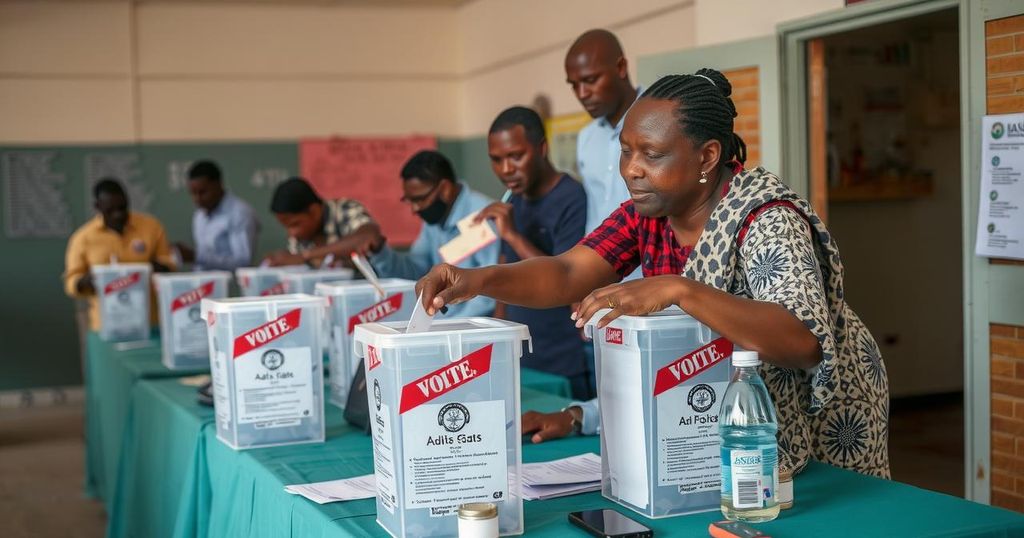Chad’s Parliamentary Election Underway Amid Boycott and Controversy

Voting is underway in Chad’s first parliamentary election in 13 years, seen as essential for ending military rule. Low turnout is reported, particularly due to a boycott by opposition parties, with allegations of predetermined results. Concerns about electoral integrity are raised as the election occurs amid ongoing regional instability and climate challenges.
Voting is currently in progress in Chad, marking the nation’s inaugural parliamentary election in over a decade. The government is positioning this election as a pivotal move toward restoring democratic governance, following an extended period of military rule. Despite this, significant opposition has emerged, urging citizens to boycott the elections, which encompass the selection of a new parliament, provincial assemblies, and local councils.
Low voter turnout was observed in N’Djamena, the capital, at the onset of the polling, which election officials attributed to unfavorable weather conditions. Opposition parties, meanwhile, questioned the integrity of the electoral process, asserting that the outcomes have been preordained, leading to calls for voter apathy. This boycott ostensibly favors candidates loyal to President Mahamat Idriss Deby Itno, who ascended to power following a military coup in 2021 and was subsequently recognized through a presidential election earlier this year.
Deby engaged citizens through social media, encouraging robust participation in the elections, which he declared to be of historic significance. Conversely, opposition leader Succes Masra criticized the election, alleging predetermined results were already in place. Voter sentiments varied, with some citizens expressing hope for change, particularly regarding job availability and overall equality.
There were reports of anomalous activities, such as the disappearance of over 1,000 ballots in Bongor, compelling the opposition Democratic Party of the Chadian People to issue a call for vigilance to counter perceived electoral fraud. This election transpires against the backdrop of ongoing violence in the Lake Chad region, influenced by Boko Haram, alongside geopolitical tensions involving France and Chad’s interaction in the Sudanese conflict.
Authorities assert that these elections represent a crucial phase in Chad’s transition to a democratic framework, following the long-standing rule of the late Idriss Deby, who governed the country for thirty years.
Chad, a nation characterized by significant economic challenges, is attempting to stabilize its political landscape after years of military oversight. Following the passing of President Idriss Deby in 2021, his son, Mahamat Idriss Deby Itno, assumed control through military means. The upcoming parliamentary elections are perceived as essential for reinstating civilian governance and addressing longstanding issues of governance and civil rights, while opposition factions argue against the legitimacy of the electoral process amid allegations of electoral manipulation.
The ongoing parliamentary election in Chad highlights the complex interplay of governance, public sentiment, and opposition dynamics within the country. Despite government assurances of a transformative democratic process, widespread dissent and allegations of electoral fraud cast a shadow over the legitimacy of the elections. As citizens face difficult challenges including economic hardships and security threats, the outcome of this election will significantly influence Chad’s political future and its journey towards democracy.
Original Source: www.aljazeera.com







